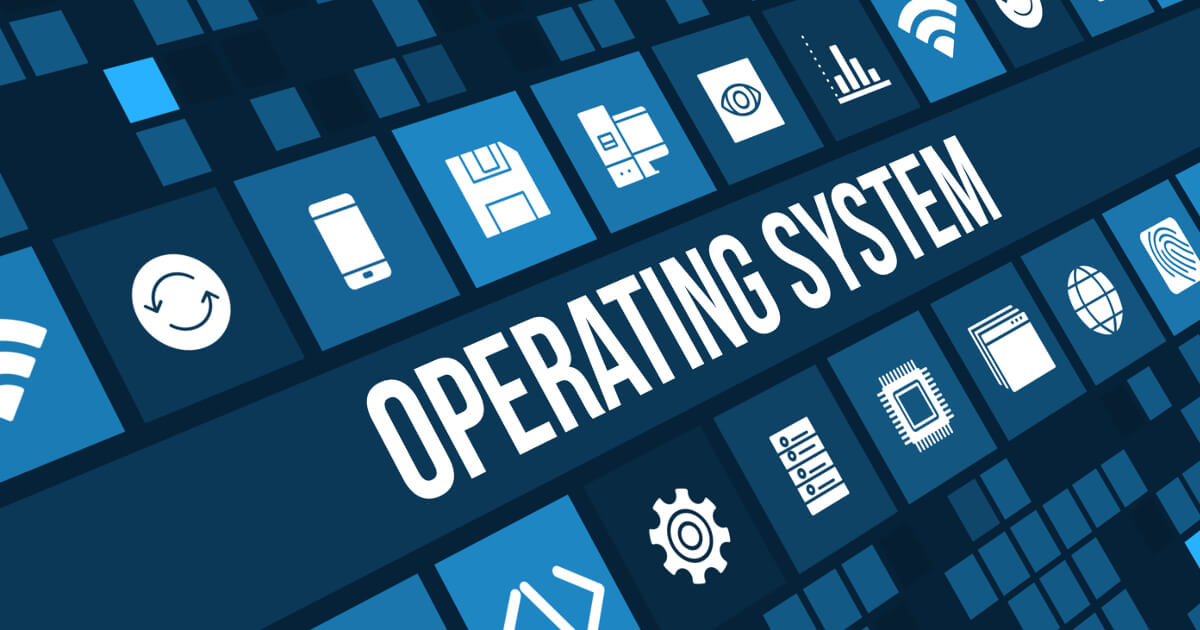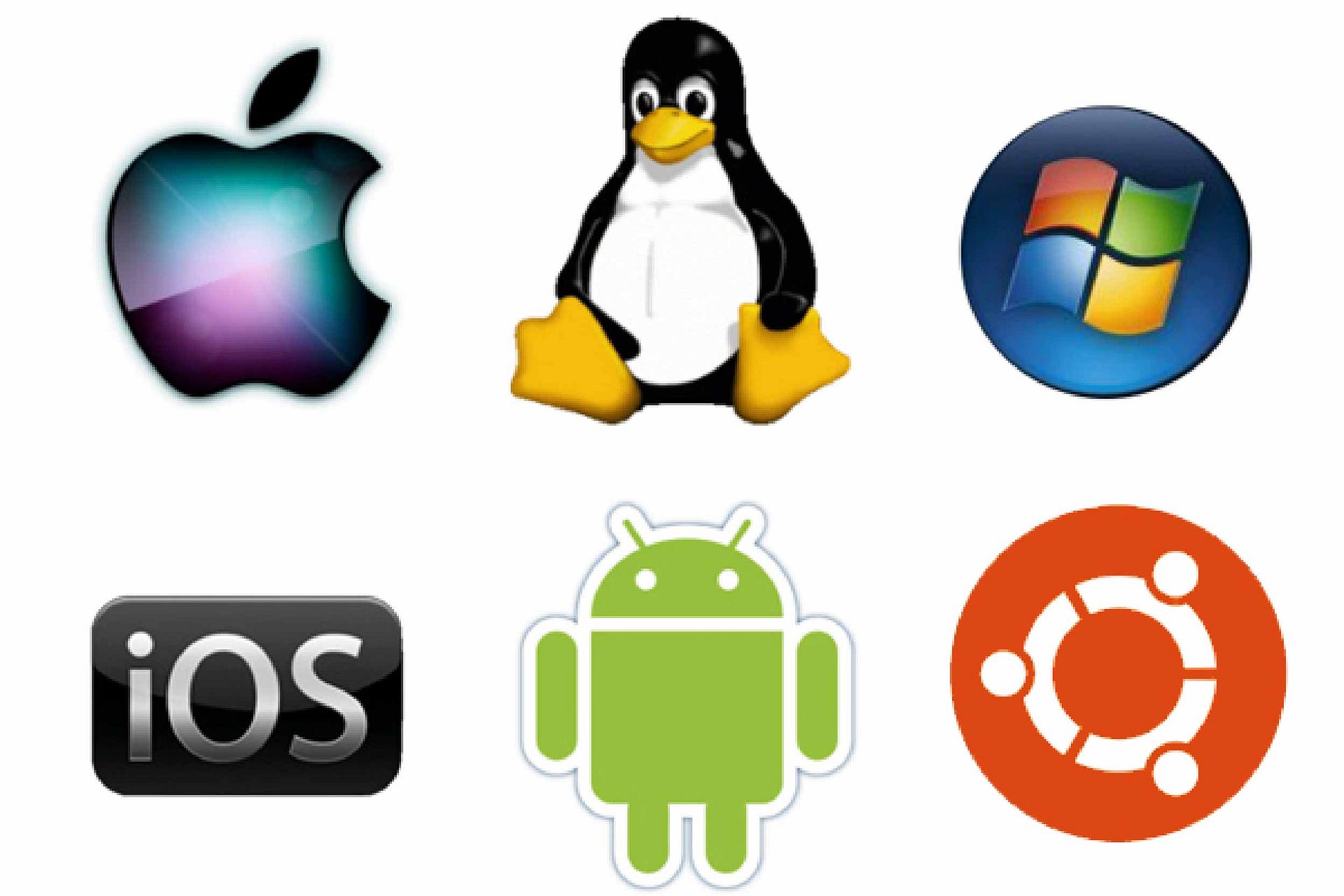What is an Operating System?
An Operating System(OS) is a collection of software that manages computer hardware resources and provides common services for computer programs. It acts as an interface between users and the computer hardware.
The operating system is responsible for managing the hardware and executing the applications. It acts as a host for applications that are run on the machine. The applications are written to be run on top of a particular operating system. Every operating system will have a different code, so one application developed for a particular operating system won't run on another operating system. Even the operating system will be written for different operating systems, this means that one operating system developed for a specific hardware might not run properly on a different hardware.
Operating System is responsible for performing all the basic tasks, like file managing, processing, task management, etc.,
Role of Operating System
- Hardware Management
- Process and Task Management
- Memory Management
- File System Management
Types of Operating Systems(O.S)
Majorly there are 4 types of operating systems, they are:
- WINDOWS
- LINUX
- ANDROID
- iOS/macOS
WINDOWS
Windows is an Operating System which one of the most popular operating systems in the PC industry. It uses user-friendly GUI components to interact with the users. This O.S. is designed by Microsoft and is available for purchase. This is mostly a pure GUI-based Operating System that provides a user-friendly atmosphere to operate the machine. There are several variations of Windows designed for various purposes. For example, Windows Home for normal users, Windows Pro for Enterprise users, Windows Server for server machines, etc., Microsoft has released many versions of Windows to improve the user experience, some of them are Windows NT, Windows XP, Windows 7, Windows 11, and Windows 10. Windows is a resource-hungry O.S. that requires more advanced systems to run. Even though it has a built-in anti-virus removal tool, it is riskier O.S. because of its popularity.
Advantages
- User-friendly interface.
- Support for major hardware in the market
- Ease of use
- Huge collection of software
- Regular updates
- Faster customer support
Disadvantages
- Security concerns
- Infections assaults
- Resource hungry
- Costlier for regular users
LINUX
Linux is an open-source operating system that is based on the Unix operating system. It was
developed by Linus Torvalds. Linux is free to use and distributed and available in many different distributions. Some of them are, Ubuntu OS, Ubuntu server, Zorin OS, Mint OS, and Kali Linux, these are some popular ones. Since it is an open-source OS, there is no security concern, because its source code is available to the public. It is compatible with a wide range of hardware, and because it is an open-source OS, we can customize it however we want. This OS is also very light and unlike Windows, this OS won't put much stress on the hardware by running unwanted services in the background. This is not so user-friendly OS because it has less Graphical components, and most of the OS is navigated through the command line. We can get most of the features using the commands, because of this, normal users find it difficult to operate the system.
Advantages
- Open-Source
- Customizability
- Security
- Stability
- Free and Open-source
- Compatibility
Disadvantages
- Lack of commercial support
- compatibility issues
- limited hardware support
- Steep learning curve
- Limited software availability
ANDROID
Android is an Operating System, mainly focused on mobile devices. This Operating System is based on a modified version of Linux kernel and other open-source software, designed primarily for touchscreen mobile devices such as smartphones and tablets. It also has its Operating System for smart TV, smartwatch, car infotainment system, etc., It is the most popular OS among smartphones. It is popular because, of its simplicity, ease of use, and lightweight, user-friendly Graphical components. It is the only OS except for iOS in the smartphone industry. This OS is also open-source software and has many skins. Most companies adopting Android customize the OS to give a different and unique touch and features. Because of this reason, several variations of Android have different skins. For example, Oxygen OS, Realme OS, Fountouch OS, etc., Unlike iOS we can install software from unknown sources, this feature gives users freedom of installing apps from different sources on the other hand it increases the probability of getting the virus. Android is known for bringing new features in its OS way earlier than iOS.
Advantages
- Open Ecosystem
- Open Source Operating System
- Diverse Phone Options
- Freedom of choice to install software
- Customizability
Disadvantages
- Security risk
- Performance variability
- Bloatware
- Lack of timely updates
iOS/macOS
iOS and macOS are operating systems developed by Apple Inc, exclusively for Apple devices. It is well known for its astonishing performance which is unbeatable in the industry. It comes preloaded with the apple devices like iPhone, iMac, iPad, etc., and it also has OS for Apple watch, car infotainment systems, etc., it has industry-leading security by limiting users not letting them installing software from unknown sources and also iOS/macOS doesn't give much flexibility to the user to connect to the systems other than on their own devices. But iOS and macOS have a seamless connection between their ecosystem. Files can be transferred between the devices with much effort. And it has the best user experience when speed and ecosystem are considered. This OS is also well known for its software updates, even iPhone 8 which was released in the year 2017 has the latest iOS 16 which is released in the year 2022.
Advantages
- User-Friendly interface
- Seamless integration with the Apple ecosystem
- Productivity
- Stability and Performance
- Security and privacy
- Regular software updates
Disadvantages
- Limited Hardware Options
- Software Compatibility
- Cost
- Limited Customization
- App Store Restrictions
- File Management
- Dependency on Apple Ecosystem
- Delay in adopting new features
Conclusion
Every Operating System has some advantages and disadvantages. Every Operating System is designed for different purposes, like Linux for speed, Windows for ease of use, Android for capability and iOS/macOS is designed by keeping security and Puduction in mind. In the end, users are the ones who should choose the Operating System as per their requirements in mind.
Please comment below if any questions.




No comments:
Post a Comment